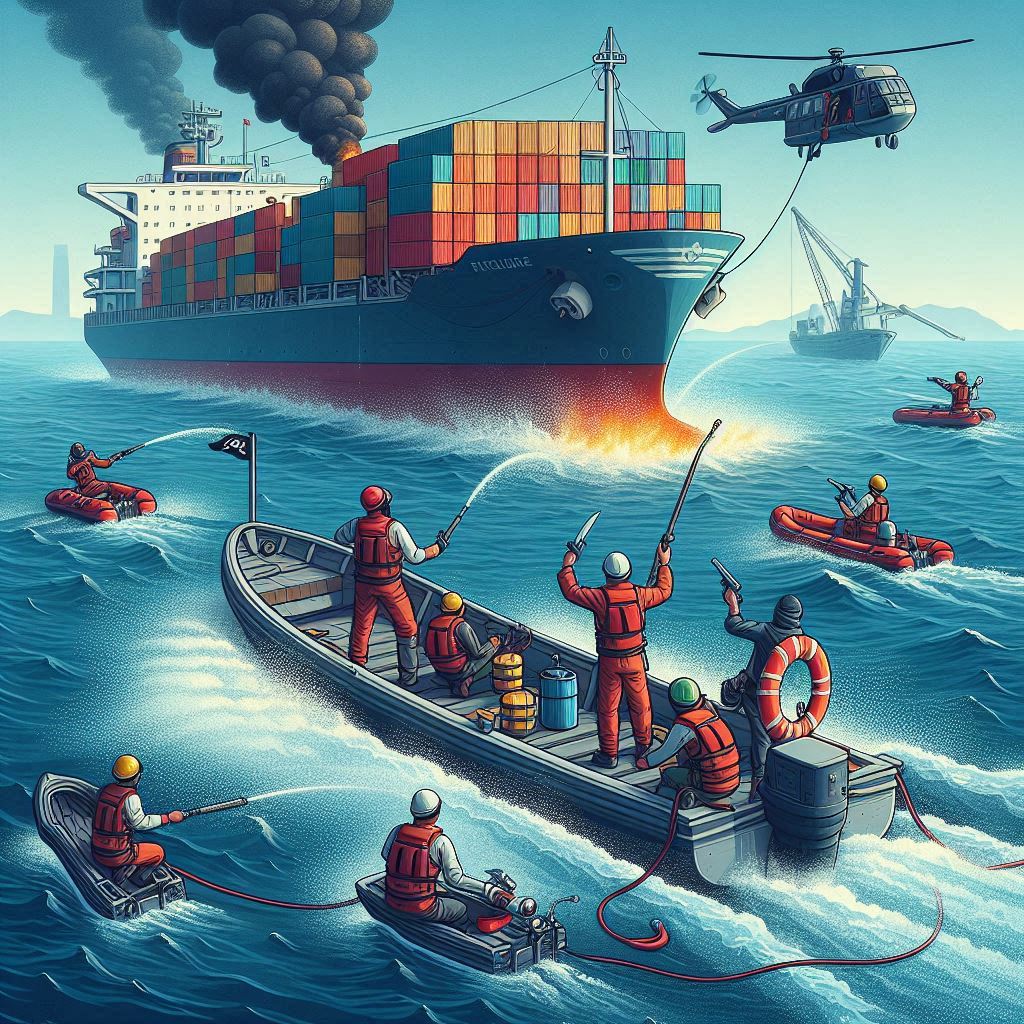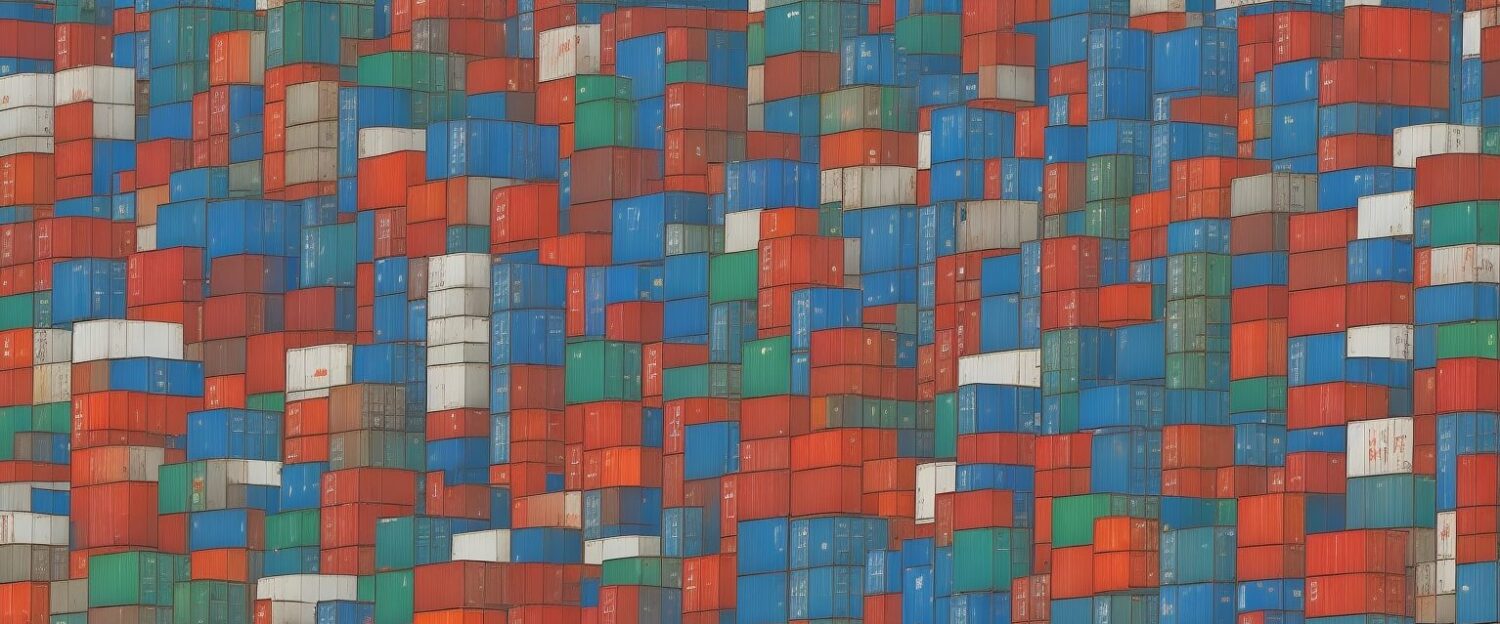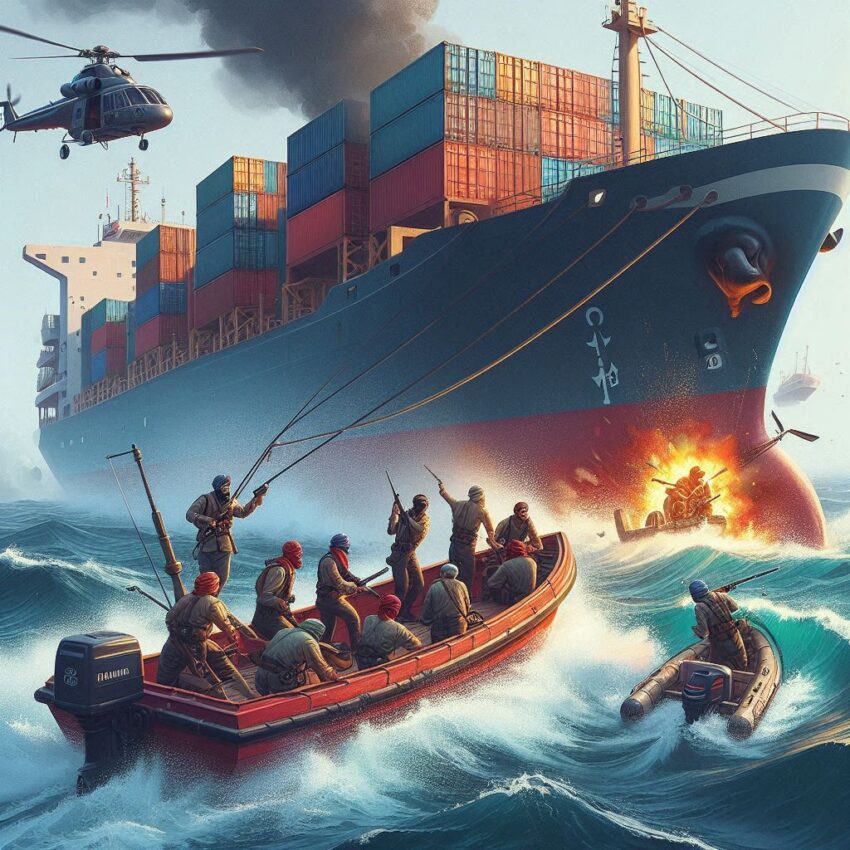 Attacks on Red Sea shipping by Houthis are severely disrupting global trade and supply chains, which are already strained by the Ukraine war and climate change effects on the Panama Canal, the UN’s trade and development agency, UNCTAD, reported on Thursday.
Attacks on Red Sea shipping by Houthis are severely disrupting global trade and supply chains, which are already strained by the Ukraine war and climate change effects on the Panama Canal, the UN’s trade and development agency, UNCTAD, reported on Thursday.
Jan Hoffmann, Chief of Trade Logistics at UNCTAD, stated that these attacks heighten geopolitical tensions and increase costs and greenhouse gas (GHG) emissions.
“Maritime transport is essential for global trade,” he said, addressing journalists at the UN Headquarters in New York via video link from Geneva. “These disruptions highlight their susceptibility to geopolitical conflicts and climate change.”
Escalating conflict The Houthi rebels, also known as Ansar Allah, control significant parts of Yemen, including the Red Sea coast. Since November, they have intensified their assaults on ships navigating the narrow waters towards the Suez Canal, targeting vessels bound for Israeli ports.
In retaliation, the United States, United Kingdom, and other nations have launched airstrikes against the Houthis at sea and on land, further escalating regional tensions.
A vital passage The Suez Canal is crucial for international shipping, handling between 12 and 15 percent of global trade and approximately 20 percent of container traffic. Disruptions here can have a severe global ripple effect, as evidenced by the March 2021 blockage caused by the Ever Given container ship.
Due to the risk of attacks, ships are avoiding this route, opting for a much longer journey around Africa’s southern tip. Container ship transits have decreased by 67 percent compared to the previous year. The most significant impact is on liquefied natural gas (LNG) carriers, which have ceased transiting since January 16, according to UNCTAD. Previously, two to three gas carriers passed through daily.
Global shipping challenges These issues compound existing global trade disruptions caused by the Ukraine conflict and unusually low water levels in the Panama Canal due to climate change. Low water levels have reduced ship transits by 36 percent compared to last year and nearly 62 percent compared to two years ago.
The effects have been “dramatic,” Hoffmann noted, highlighting a surge in average container spot rates. Shipping costs from Shanghai have more than doubled since early December 2023, with rates to Europe tripling and those to the US west coast also rising, despite not passing through the Suez Canal.
“We are observing multiple impacts,” he warned, citing rising costs, potential inflation, global delays, disruptions, and worsening climate change contributors.


